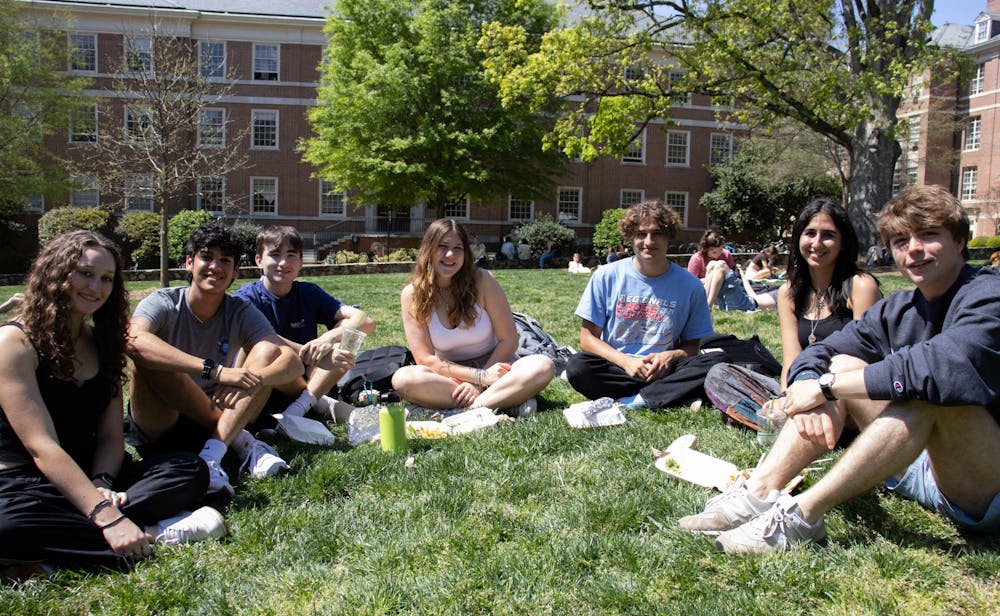Picture this: You’ve made it. You graduated with your degree. You interviewed and landed your dream job in your favorite city. They’re paying you a very pretty penny. You did everything right, but when you look around on that first day at a new job in a new city, you realize something important is missing: your friends.
Making friends post-graduation isn’t necessarily a focus area at University Career Services or Counseling and Psychological Services, even though social connection is an essential part of our well-being. Connecting in this way is a skill that has to be learned, but college life makes the process seem more natural than it actually is.
There are over 900 organizations listed on Heel Life with flyers all around campus. Going to class means passing by events, club tables or people just hanging out in the Pit or the Quad. It means meeting up with friends to study and grab dinner. It means easily finding people that share your interests or hobbies. While all these avenues for connection are available to us, it’s not always students’ first priority.
“I had a very capitalistic, goal-oriented mindset in college that I am currently deconstructing as a young adult,” said Shatera McNair, a UNC-Chapel Hill alumnus who graduated last May.
McNair said she prioritized money, grades and her profession while in school, so most of her social life was a byproduct of classroom interactions, work environments and service organizations.
McNair also explained how being a Black woman and a first-generation college student perpetuated this “pull yourself up by the bootstraps” mentality, which didn’t leave much room for friends without benefits.
Striking that perfect balance between social life and academics favors the people who already know what they’re doing. These are people with college funds and college-graduated parents who already know the system quite well.
“I feel like some of the classes and the skill sets at UNC are geared for people going to grad school,” Julie Bonds, a 2022 UNC graduate, said. Graduate school is not a financially feasible option for her.
“Whatever your struggles are in undergraduate, you’re gonna have the same things at your job,” Bonds said.




